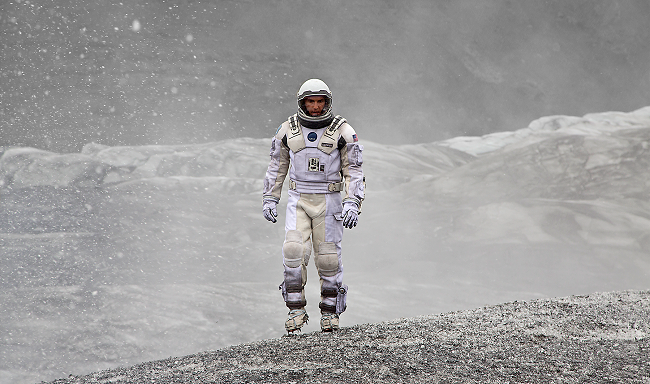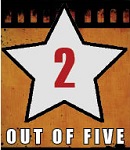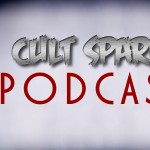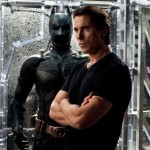

Look, I'm sure there are people out there whose minds will be expanded thanks to Christopher Nolan showing them a glimpse of quantum physics in action. Actually, I know there will be at least one, because during a climactic scene of Interstellar, Nolan's new would-be head-trip, a woman in front of me leaned over and asked her date, "So is this a dream?" His answer: "No, it's like the fifth dimension or something." I had to chuckle, as they were slowly piecing together the answer to the movie's biggest riddle — one that I had sussed out within the film's first hour. It may sound like I'm bragging, but the truth is I figure anyone who's ever cracked open a physics book or watched enough brainy sci-fi or read A Wrinkle in Time in eighth grade will have solved the mystery of Murph's ghost long before the movie does.
But before Nolan and his brother/screenwriting partner-in-crime Jonathan get around to that bit of business, they drop nearly three hours of BIG SERIOUS-MINDED IMPORTANT SCIENCE-FICTION in our lap, dolloped with a heavy glob of LOVE IS THE KEY TO THE UNIVERSE. And if you can't tell from the sarcasm dripping from those capital letters, most of it proves to be interminable. Interstellar is a disaster. It's boring and not nearly as smart or moving as it thinks it is. It wants to be visionary sci-fi but proves severely lacking in vision. Maybe an ice-covered planet in a distant galaxy is a likely scientific find, but it makes for a pretty uneventful movie set. (Unless maybe there are AT-ATs. No AT-ATs here, I'm afraid.) But before I get too snarky, let's talk about one of the few things in the movie that does work.
The opening segment is strong — a mishmash of talking heads and nearly post-apocalyptic imagery that reveal the story of mankind's future. The climate has turned harsh, unleashing severe dust storms across the globe, which leads to the mass failing of agriculture and severe depopulation. (How severe? A New York Yankees game is played in front of a Little League-sized crowd.) The people who remain are mostly farmers and stay busy trying to feed those who remain with the crops that will actually still grow. Matthew McConaughey plays one of those farmers, an ex-NASA pilot named Cooper who harvests corn with the help of his father-in-law Donald (John Lithgow) and his two kids, son Tom and daughter Murph. During these scenes, Nolan effectively paints a bleak picture of humanity's possible future, one which seems even more likely now as climate-change deniers keep getting elected to Congress.
But a movie called Interstellar isn't going to be about farming for long, and the film soon turns its attention to the strange phenomena that begin occurring in Murph's bedroom. Books are flung off the wall on their own accord and gravity itself starts acting weird, creating strange codes out of the dust on the floor. Cooper susses out that they're coordinates, which leads him to a top-secret NASA laboratory where Michael Caine's scientist is planning a space mission through a nearby wormhole. The mission's objective: To find a suitable planet in a distant galaxy where humanity can relocate. It seems to be destiny — or some kind of divine intervention — that Cooper pilot the spaceship, though it means he will have to leave his children behind for years, maybe even decades. But with the survival of the human race at stake, he decides he has no choice.
The rest of the movie is a sci-fi adventure story detailing Cooper's long journey through the cosmos, and Nolan's missteps pile up early and often. Though the film wastes lots of time on dubious story threads through its three hours, it spends basically no time on Cooper "accepting the call." There's a scene where he tries (unsuccessfully) to make peace with Murph before he goes, but, other than that, we jump from McConaughey discovering a hidden NASA base to McConaughey being in space at light speed. It's extremely jarring. The mission itself spans years, though Interstellar does a terrible job of letting the viewer know how much time has passed between scenes. At one point, some of Cooper's fellow astronauts, including Amelia Brand (Anne Hathaway), enter cryosleep and it seems he's about to go under as well — but then he doesn't. And then suddenly everyone else is awake again and they're flying by Saturn … which was supposed to take two years to reach! There's a scene where Cooper and crew are on a planet where for every hour they spend on its surface, seven years will pass on Earth (meaning, from Cooper's point of view, his children will be aging rapidly while he does not). Nolan is very careful to make sure this concept is explained, yet he has no interest in showing the normal passing of time when they're on the ship. McConaughey is always clean shaven. Hathaway's hair is always short and perfect. The only time the trip really seems like a hassle is when they're taking part in overlong action sequences staged on annoying planets with extreme time differentials.
Speaking of Hathaway, she gets saddled with the film's biggest go-nowhere storyline. Once the crew is through the wormhole, they have three possible planets to pick from to research. Some time prior, NASA had sent out a trio of scientists to evaluate each planet's viability as an Earth replacement — one for each world — and it's Cooper's team's job to assess which planet looks most promising and attempt to hook up with the corresponding scientist, if they're even still alive. Brand is defined by the fact that she's biased about which planet to visit because she was in love with one of the scientists, who, by the way, we never even meet. The fact that this great unseen love is treated like a major plot point is preposterous. We do meet another one of the scientists, surprisingly played by [NAME OF MAJOR MOVIE STAR REDACTED], whose appearance in the movie has been so far kept secret in the marketing. It's during his section that the movie briefly springs to life again. There's some actual drama for a while. But, before long, mystery actor is gone and the movie turns into a rumination about how love can transcend all of space-time if it's strong enough. Gag.
The fact is Nolan might be too cold and clinical a filmmaker to pull off a film that needs to surge with genuine heartfelt emotion as much as this one does. (To see it done right, check out Robert Zemeckis' Contact, a 14-years-old movie which tackles similar themes and, interestingly, also features McConaughey.) Nolan is great at crafting elaborate puzzle boxes like Memento (still a masterpiece) and The Prestige. And though the Leonardo DiCaprio/Marion Cotillard stuff never worked for me in Inception, it wasn't a big enough part of that movie to matter much. Here, Cooper's relationship with his daughter — who grows up to be Jessica Chastain while he's in space — is absolutely crucial, but Nolan can't manage to budge any heartstrings no matter how hard he pulls. The son, played by Casey Affleck as an adult, is used as little more than a plot point. Hathaway's character is the daughter of Caine's character, but their relationship seems perfunctory. There's Hathaway's MIA boyfriend. And also an ending — SPOILER ALERT — that suggests Cooper and Brand are destined to be together romantically, even though this was barely hinted at during the film's three hours. (Plus, McConaughey and Hathaway have zero chemistry.)
And even if the film can't connect to its audience emotionally, you'd think Nolan could at least deliver spectacle when it comes to the big-idea science stuff. But nope — I promise you the fifth dimension has never felt so mundane, even if you are caught off-guard by the late-in-the-game twists. In fact, the most mind-blowing thing about Interstellar is likely Hans Zimmer's score, a melodic and pounding tilt-a-whirl of synthesizer and pipe organ that sounds like it was written for an Italian horror film. It's amazing and deserved a far better fate than serving as the backing track to the worst film in Nolan's filmography thus far.











